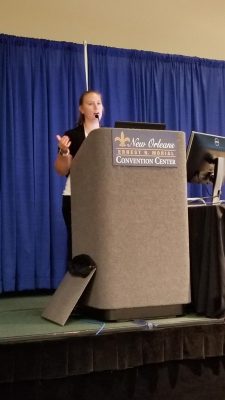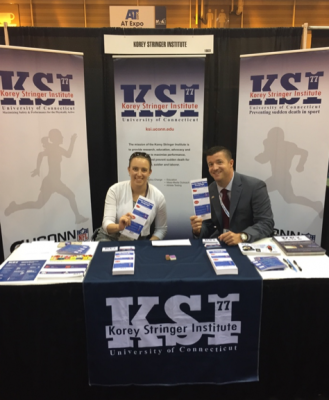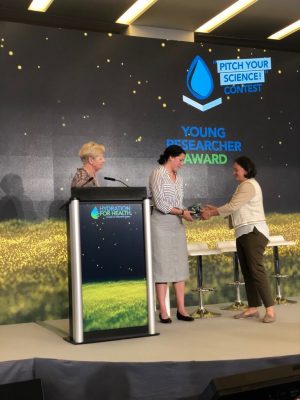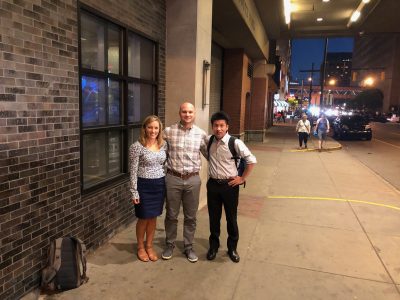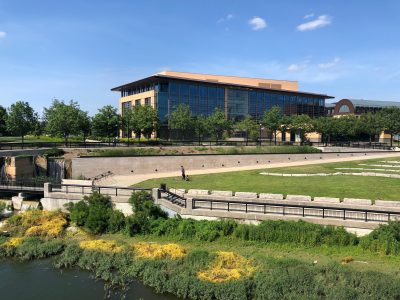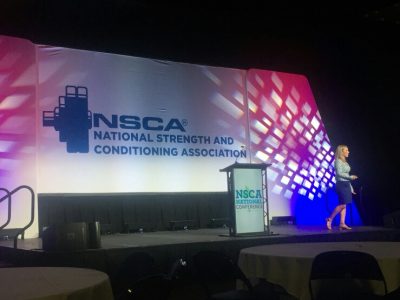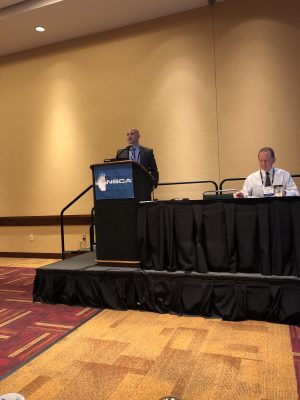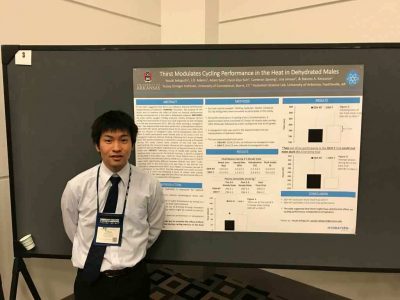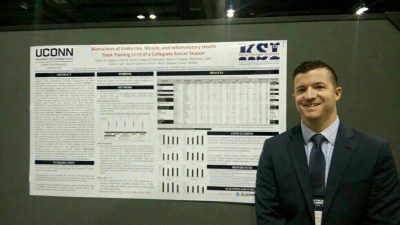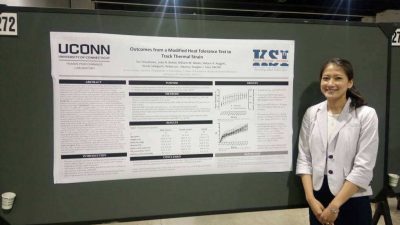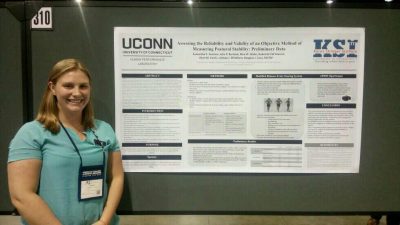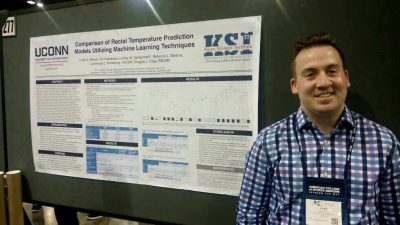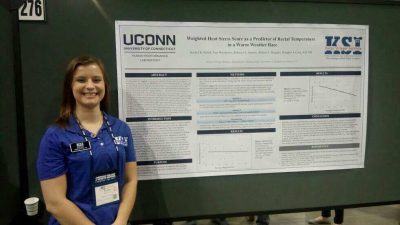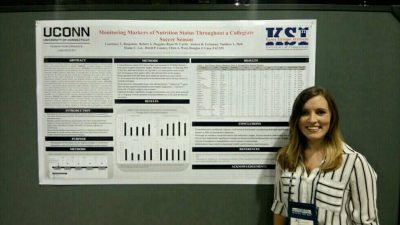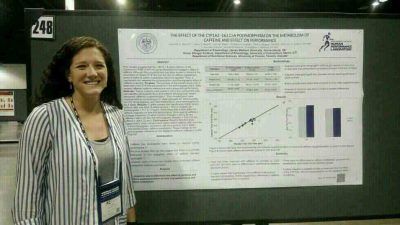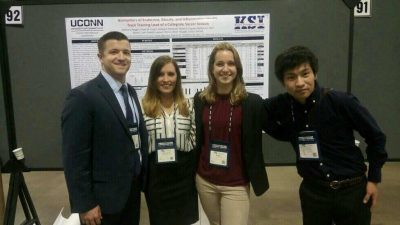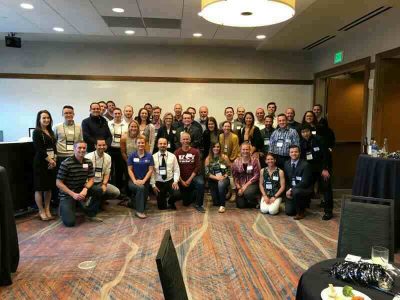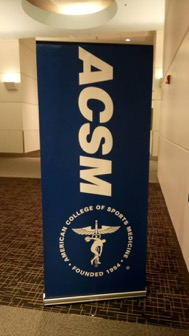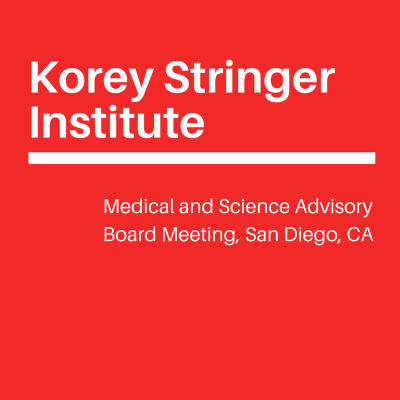Brad Endres, MS, ATC, CSCS
Assistant Director of Sport Safety, Korey Stringer Institute
The new year is upon us, and with the changing of the calendar comes the increased participation in our beloved winter sports. Fittingly, January is National Winter Sports Traumatic Brain Injury (TBI) Awareness Month, so before you dust off the skates or head up the ski-lift, here is a breakdown of what you need to know to stay safe out on the slopes or in the rink.
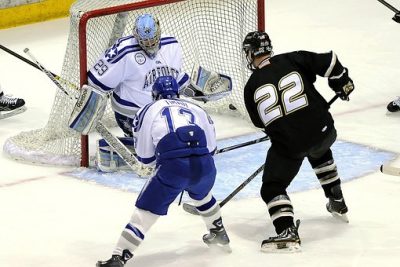
What is a traumatic brain injury (TBI)?
The types of traumatic brain injuries include sport-related concussion (SRC), diffuse brain injury, second impact syndrome, subdural hematoma, and epidural hematoma. Although cerebral concussions rarely cause death, they can be the starting point for other deadly brain injuries.
How often does TBI occur?
Between 1.6 million-3.8 million TBIs are seen in sports each year in the United States. Athletes under the age of 15 represent the majority of TBIs. Also, in every age group males show a higher rate of TBIs than females.
What is a sport-related concussion?
According to the 5th International Conference on Concussion in Sport held in Berlin, October 2016, a SRC is defined as a TBI induced by biomechanical forces. Several common features that may be utilized in clinically defining the nature of a concussive head injury include:
- SRC may be caused either by a direct blow to the head, face, neck or elsewhere on the body with an impulsive force transmitted to the head.
- SRC typically results in the rapid onset of short-lived impairment of neurological function that resolves spontaneously. However, in some cases, signs and symptoms evolve over a number of minutes to hours.
- SRC may result in neuropathological changes, but the acute clinical signs and symptoms largely reflect a functional disturbance rather than a structural injury and, as such, no abnormality is seen on standard structural neuroimaging studies.
- SRC results in a range of clinical signs and symptoms that may or may not involve loss of consciousness. Resolution of the clinical and cognitive features typically follows a sequential course. However, in some cases symptoms may be prolonged.
What are the signs and symptoms of a SRC?
The suspected diagnosis of SRC can include one or more of the following:
- Mechanism of Injury (eg, direct blow to the head)
- Physical signs (eg, loss of consciousness, memory loss, neurological deficit)
- Balance impairment (eg, unsteady gait)
- Behavioral changes (eg, irritability)
- Cognitive impairment (eg, slowed reaction times)
- Sleep/wake disturbance (eg, sleepiness, drowsiness)
- Signs and Symptoms including the following:
| Signs | Symptoms |
|
|
What to do if a TBI / SRC is suspected?
Any person suspected of a SRC should be removed from the mountain or event area immediately and evaluated by a licensed healthcare professional who is trained in the evaluation and management of concussions. The injured person suspected of a SRC should not return to activity on the same day as injury. Finally, continued monitoring of an athlete evaluated of having a SRC is necessary in order to observe any deterioration of physical or mental status (which warrants transport to local healthcare facility).
How do you treat an individual with a TBI / SRC?
After being evaluated by a health professional, treatment and management of a TBI/SRC includes:
- Physical and Cognitive Rest: Physical and Cognitive activities that result in an increase in symptoms should be avoided during the acute phase of concussion treatment
- Medications that mask the symptoms of a concussion (NSAIDS, Aspirin, stimulants, and antidepressant) should be avoided, especially in the acute phase of the injury.
- The use of acetaminophen (Tylenol) may be considered in treating symptoms such as headache but should be used after the acute phase of the injury
- Athletes sustaining a concussion should have a follow-up appointment with their general practitioner to evaluate the mechanism of injury, the course of symptoms, and any previous history of concussive injuries.
- Return-to-play following a concussion should follow a graded return-to-play protocol. This protocol should consist of 5-7 stages and take 5-7 days to complete (if there is no recurrence of symptoms). The graded return to play protocol should begin once the athlete has a cessation of symptoms for at least 24 hours. An athlete must be prohibited from returning to activity if they are still experiencing symptoms.
- The goal of the return to play protocol is to progressively increase the duration and intensity of exercise to ensure that there is no return of symptoms with physical exertion. See the table below to see an example of a 6-stage return-to-play protocol.
| Rehabilitation Stage | Functional Exercise at each Stage of Rehabilitation |
| 1. No activity | Complete physical and cognitive rest |
| 2. Light aerobic exercise | Walking, swimming, or stationary cycling keeping intensity <70% No resistance training |
| 3. Sport specific exercise | Skating skills in ice hockey, slide board for skiing, general agility drills No head impact activity |
| 4. Non-contact training drills | Progression to more complex training drills (eg: passing drills in ice hockey, bunny slopes for skiing/snowboarding) May begin progressive resistance training |
| 5. Full-contact practice | Participate in normal training activities |
| 6. Return to play | Normal game play or event competition |
How do I prevent a TBI / SRC?
Based on the most updated consensus statement created by a committee of sports medicine professionals at the 5th International Conference on Concussion in Sport, the following steps were recommended for TBI prevention:
- Protective Equipment: There is sufficient evidence in terms of reduction of overall head injury in skiing/snowboarding to support strong recommendations and policy to mandate helmet use in skiing/snowboarding. The evidence for mouthguard use in preventing SRC is mixed, but suggests a positive trend towards a protective effect in collision sports (such as hockey).
- Rule Change/Risk Compensation: The strongest and most consistent evidence evaluating policy is related to body checking in youth ice hockey (ie, disallowing body checking under age 13), which demonstrates a consistent protective effect in reducing the risk of SRC.
- Aggression/Violence: Appropriate competition and the aggressive nature of some sports is not discouraged, however unnecessary violence or other aspects should be evaluated based on the merit they provide in the sport.
- Education: The ability to detect and deal with a TBI is enhanced when everyone on the slope or ice is looking out for the safety of the athletes. Education should include the athletes themselves, coaches, administrators, and parents. It should cover basic tools for recognition, what to do if they suspect a concussion, and the process of treatment and returning to participation.
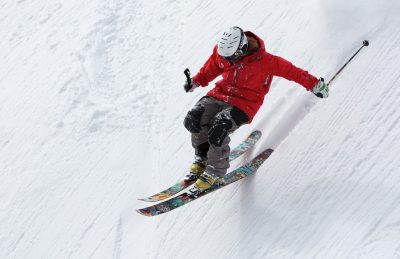
What are the risk factors for SRC?
- Previous concussions: A previous history of a concussion increases the risk of sustaining another concussion on the order of 2-5.8 times greater risk
- Number, severity and duration of symptoms: Evidence has shown that those who report a greater number of symptoms, or report a greater severity of symptoms or duration, may experience a longer recovery than those who experience less severe symptoms.
- Sex: Research has shown that females experience a higher incidence of concussion in addition to reporting a increased number/severity/duration of symptoms, and prolonged recovery.
- Age: Young athletes may experience a prolonged recovery from a concussion and may be due to the differences in the developing brain of a child/adolescent compared to that of an adult brain
- Sport, position, and style of play: Depending on the sport, position, and the athlete’s style of play increases the risk of concussion. In sports where there is player-to-player contact, the risk of concussion increases. The table below outlines the incidence the risk of concussion for various sport.
- Mood Disorders: Mood disorders such as depression, anxiety, and irritability may complicate both the diagnosis and management of a concussion
- Learning disabilities and attention disorders: Learning disabilities such as ADD/ADHD or others that result in some form of cognitive dysfunction can complicate the management of a concussion and may lead to a longer recovery time post-concussion
So bundle up, have fun, and most importantly stay safe this Winter! For further information, check out the TBI page at the Korey Stringer Institute’s website at https://ksi.uconn.edu/emergency-conditions/traumatic-brain-injury/. The 5th International Conference on Concussion in Sport publication can be found at https://bjsm.bmj.com/content/51/11/837.full.pdf.

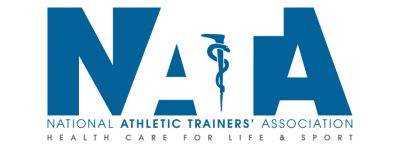
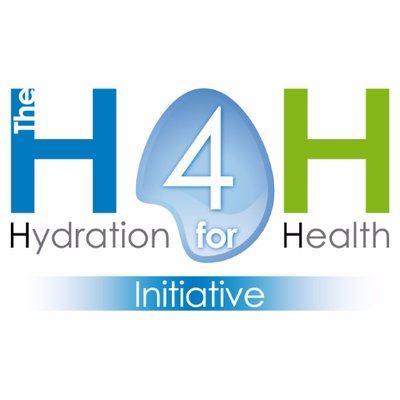


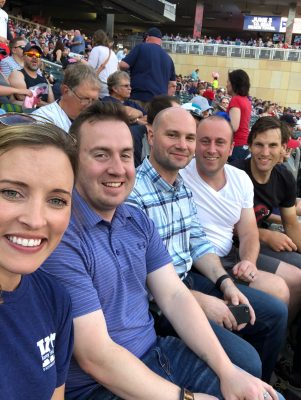 Attending this conference allows the KSI staff to obtain further knowledge, skills and new ideas as well as make new relationships with other professionals. This conference certainly helps to develop KSI and execute our goals to maximize performance, optimize safety and prevent sudden death for the athlete, soldier and laborer. The KSI staff members are thankful to all of the presenters and attendees for their contributions to this field as well as helping make this conference one where individuals who are passionate about similar topics can meet, collaborate, and enjoy one another.
Attending this conference allows the KSI staff to obtain further knowledge, skills and new ideas as well as make new relationships with other professionals. This conference certainly helps to develop KSI and execute our goals to maximize performance, optimize safety and prevent sudden death for the athlete, soldier and laborer. The KSI staff members are thankful to all of the presenters and attendees for their contributions to this field as well as helping make this conference one where individuals who are passionate about similar topics can meet, collaborate, and enjoy one another.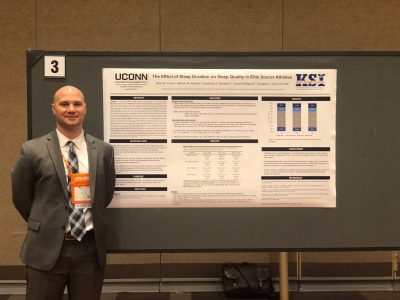
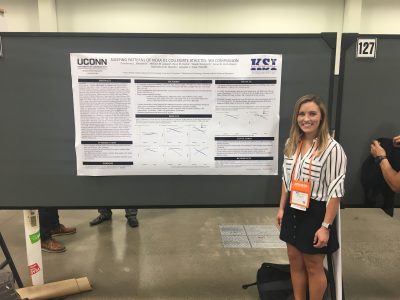
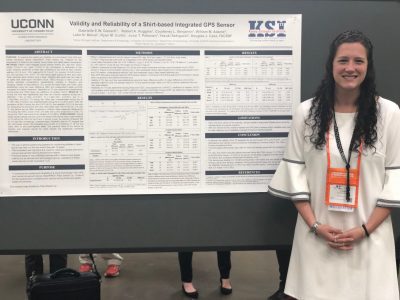
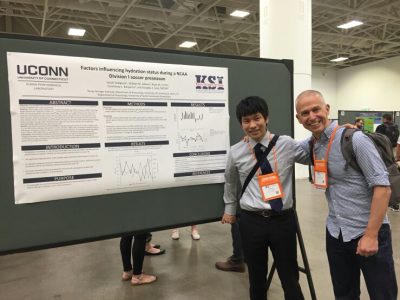
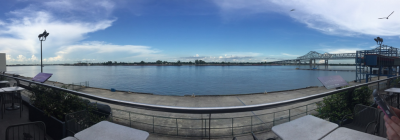
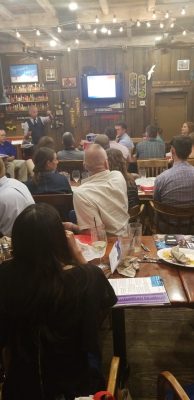 The week kicked off with our Medical & Science Advisory Board Meeting at one of Dr. Casa’s favorite restaurants – Bubba Gump Shrimp Co. We were very thankful to have so many familiar faces in the room, and even saw a little competitiveness come out in a friendly game of Bubba Gump Trivia. Following dinner and a lot of laughs, Dr. Casa spoke to the Board regarding the recent accomplishments of KSI, especially three primary initiatives that have been the focus over the last couple years: (1) the ‘Raise Your Rank Campaign’, a state-specific approach aimed at improving mandated best practices policies to reduce catastrophic injuries in sport, (2) the Athletic Training Locations and Services (ATLAS) database, which has now officially mapped the extent of athletic trainer services provided to every public and private secondary schoolacross the United States, and (3) the Perceptions of Athletic Training study, which is currently assessing perceptions of the profession from athletic directors, principals, superintendents, legislators, coaches, and parents in order to develop educational strategies to further raise awareness of the value of the athletic training profession.
The week kicked off with our Medical & Science Advisory Board Meeting at one of Dr. Casa’s favorite restaurants – Bubba Gump Shrimp Co. We were very thankful to have so many familiar faces in the room, and even saw a little competitiveness come out in a friendly game of Bubba Gump Trivia. Following dinner and a lot of laughs, Dr. Casa spoke to the Board regarding the recent accomplishments of KSI, especially three primary initiatives that have been the focus over the last couple years: (1) the ‘Raise Your Rank Campaign’, a state-specific approach aimed at improving mandated best practices policies to reduce catastrophic injuries in sport, (2) the Athletic Training Locations and Services (ATLAS) database, which has now officially mapped the extent of athletic trainer services provided to every public and private secondary schoolacross the United States, and (3) the Perceptions of Athletic Training study, which is currently assessing perceptions of the profession from athletic directors, principals, superintendents, legislators, coaches, and parents in order to develop educational strategies to further raise awareness of the value of the athletic training profession.